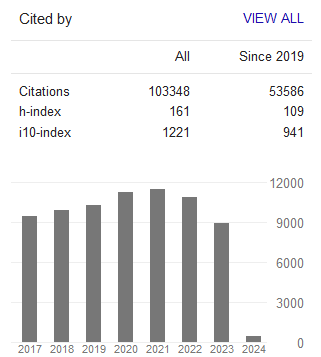Engineering Consultancy Practice (ECP) Business Model in Malaysia: A Structural Equation Modeling (SEM) Approach
- Justin Lai
- Rosli Zin Khairulzan Yahya
- Chai Chang Saar
Abstract
The implementation of liberalization in Malaysia has offered opportunities to the Malaysian to expand business. The salient point of liberalization of Engineering Consultancy Practices (ECP) is the opening of the flood gate for non-professionals (including foreigners) to register and operates consultancy practices. This would create an excessive competitive environment to the Malaysian ECP. The aim of this study is to identify the successful business model to be adopted by Engineering Consultancy Practice (ECP) for building its capacity and competitiveness. This study is important in the sense that it serves as one of the pioneer studies, focusing on the engineering consultancy practices, from the perspective of business model. Principal Component Analysis (PCA) is employed to analyze data from a quantitative survey. Three components are extracted through PCA approach: (1) Profit Structure factor, (2) Management Capability factor and (3) Stakeholder Relationship factor. Consequently, Structural Equation Modeling (SEM) is utilized to perform analysis on the data extracted from PCA. Two (2) Business Model Indices are formed to examine the business performance in terms of business model criteria and business performance. Through the data validation, it is found that ECP Business Performance Index is best to evaluate the business performance. Understanding the core values related to the Engineering Consultancy Practices could help the local stakeholders to have better preparation and planning to face a greater challenge lies as a result of the liberalization.
- Full Text:
 PDF
PDF
- DOI:10.5539/ijbm.v11n3p52
Journal Metrics
Google-based Impact Factor (2023): 0.86
h-index(2023): 152
i10-index(2023): 1168

Index
- Academic Journals Database
- AIDEA list (Italian Academy of Business Administration)
- ANVUR (Italian National Agency for the Evaluation of Universities and Research Institutes)
- Berkeley Library
- CNKI Scholar
- COPAC
- EBSCOhost
- Electronic Journals Library
- Elektronische Zeitschriftenbibliothek (EZB)
- EuroPub Database
- Excellence in Research for Australia (ERA)
- Genamics JournalSeek
- GETIT@YALE (Yale University Library)
- IBZ Online
- JournalTOCs
- Library and Archives Canada
- LOCKSS
- MIAR
- National Library of Australia
- Norwegian Centre for Research Data (NSD)
- PKP Open Archives Harvester
- Publons
- Qualis/CAPES
- RePEc
- ROAD
- Scilit
- SHERPA/RoMEO
- Standard Periodical Directory
- Universe Digital Library
- UoS Library
- WorldCat
- ZBW-German National Library of Economics
Contact
- Stephen LeeEditorial Assistant
- ijbm@ccsenet.org
